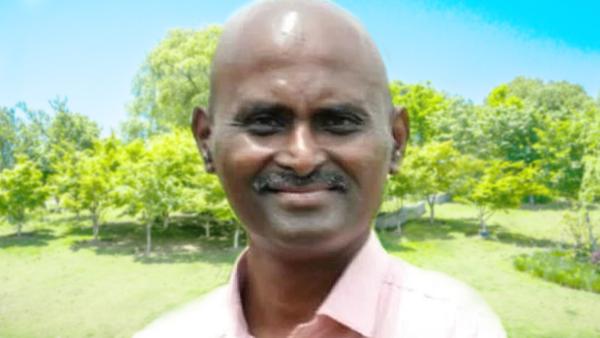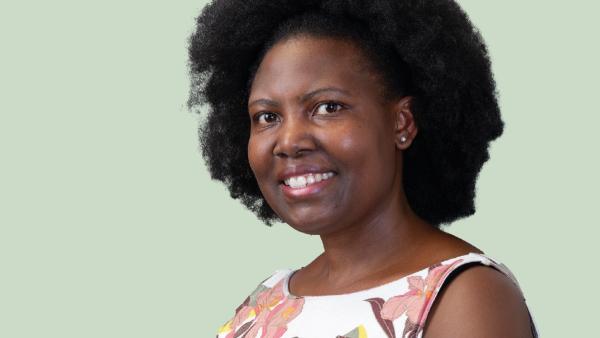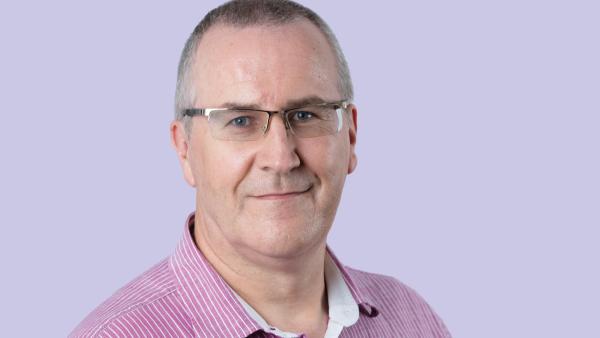With physiotherapy shortages continuing to rise, international registrants are needed more than ever. They bring fresh perspectives and cultural competence to the workplace. So why are complaints against them so high, and how can we better support them to thrive?
Ask anyone to describe a key characteristic of physiotherapists and ‘problem solver’ usually comes high up in the list. Imagine, then, the level of creativity one must develop to rehabilitate children or adults with no equipment, and only the most basic resources.
Innovation among international practitioners is often honed by necessity. Now the UK healthcare sector is benefitting from it as record numbers are being recruited to meet physiotherapy staffing shortages.
‘The skills and knowledge they’ve developed having had to adapt everything – we can utilise those,’ says Justine Musiime, who is the East of England regional AHP international recruitment lead for NHS England.
In the past two years, 8,000 new HCPC registrants were trained internationally. They bring culturally competent care to a diverse patient population.
Leaders in the international recruitment field, such as Liverpool University Hospitals NHS Trust, have dedicated support or adapted inductions to help international practitioners live and work in a new country. The trust’s Scouse School even gives a rundown of local colloquialisms.
Such up-front effort reaps long-term rewards, argues senior commissioning manager for rehab and clinical lead therapist at NHS Gloucestershire Integrated Care Board Srikesavan Sabapathy.
‘Give them more time seeing the patients to get to understand the UK system when they start – you don’t want to set them up to fail, and have to spend your time performance managing,’ says Srikesavan, who is a CSP Council member.
He also points to the high retention rate bringing continuity and reliability. ‘Most internationally trained people on visas very rarely tend to move roles during the five years waiting to become eligible for indefinite leave to remain. So, you have that guarantee.’
The fact is international recruits are still disproportionately referred to the HCPC - most ending in ‘no case to answer’. With discrimination and racism rife in UK workplaces – the NHS being no exception – the profession must adopt a different way of working if physiotherapists from overseas are to thrive here.
Our three experts speak about the major contribution international registrants make and how members can support their colleagues to succeed.
Srikesavan Sabapathy, senior commissioning manager for rehab and clinical lead therapist at NHS Gloucestershire Integrated Care Board and CSP Council member
Starting as a band 6 trauma inpatient physiotherapist, he gives a lot of credit to his managers and colleagues for his positive experience.
‘If you get a manager and a team who are really compassionate and supportive, then the sky’s the limit,’ says Srikesavan, who moved into commissioning in 2021.
He was mentored by subsequent managers to progress into a band 8a role in a short span. He is now joining as a clinical fellow with the Chief Allied Health Professions Officer at NHSE on a 12-month secondment.
Looking back, he is firm that equal effort should be made by managers and international recruits.
‘Their induction should be robust and both sides should invest time in making the working life easier. It’s a symbiotic relationship.
‘I expected little initial input to settle – in my view I should do a lot of that for myself. I read a lot at home – nothing wrong in doing that when you made an informed choice to work in another country.’
He concludes: ‘If you want internationally trained physios to come, feel they belong, and be productive members at work and society it has to be a four-way thing. One, that person has to work hard. Two, the employer has to support them. Three, the CSP has a huge role to play. Four, the HCPC has a stake in the interest of public safety.’
Justine Musiime, East of England regional AHP international recruitment lead for NHS England
Uganda-trained Justine would not let anything stand in the way of her ambition to work in the UK. As an international student, she struggled to find work without UK experience, despite having HCPC registration and two UK master’s degrees. She later faced Home Office threats of deportation, that forced her to return to Uganda. But her perseverance later paid off with a sponsored NHS band 6 specialist community physiotherapist role.
‘We bring a “I can” attitude where all we see are possibilities,’ she says of her fellow international recruits. ‘A fresh pair of eyes not used to the politics brings a sort of innocence to problem solving.’
This was certainly the case in her current role. When multiple trusts cited underpinning respiratory knowledge gaps among international recruits, her answer was simple – a new course.
Justine reached out to internationally educated critical care physiotherapist Ashwin Upadhya, who wrote and led the course, and respiratory consultant Rachael Moses who collaborated on it.
More than 450 physiotherapists applied for the course, which has been hailed a ‘game changer’.
‘Some of them have said, “you’ve saved my life…you’ve saved my career,”’ she says of trainees.
‘They had the psychological safety to ask questions and not fear judgement due to racism and discrimination.’
Providing this safety in the workplace is the duty of all colleagues, she believes. ‘We need an inclusive culture where international recruits feel safe to ask questions,’ says Justine.
‘Giving them equitable treatment means giving them the time, energy and resources it takes to realise their full potential.
‘Ample shadowing opportunities are a great way to show them what’s expected. Learning resources will help them adapt to different approaches. And if they do make mistakes, consider supporting them instead of reporting them being the first thought.
‘International recruits have uprooted their whole lives to be there, and they want it to feel like home.
‘So, it’s only fair to treat them well and be a little patient.’
Jim Fahie, CSP assistant director of Employment Relations and Union Services
The CSP is currently working on new resources to support international registrants in the workplace. The guidance that is being developed aims to help internationally trained members and will span ‘the initial advert all the way through to being embedded within an organisation assisting members to feel they belong’, according to Jim.
‘We are also undertaking joint work with the Royal College of Midwives and Society of Radiographers,’ he adds. These will reflect members’ lived experiences, along with practice concerns. One focus will be on assessing and building on the knowledge and skills of international recruits.
While the resources are not expected to be ready until after summer, there are actions that members can take now.
‘There are great resources on our website as well as for international doctors and nursing staff you can take ideas from.
Share your knowledge and skills about the services you provide and the sector you work in, ensuring as you do that, you use inclusive language.’
‘If you can help new staff feel they belong, they are more likely to feel safe to ask questions, and you can learn from their knowledge and skills too.
‘Ultimately, the person that’s going to benefit from this approach is your patient.’
All new HCPC international registrants will now receive a tailored email pointing them towards the CSP at an early stage.
‘Join early and you will get the professional benefits, along with the knowledge that you have employment cover should you need it.’
Number of subscribers: 2




